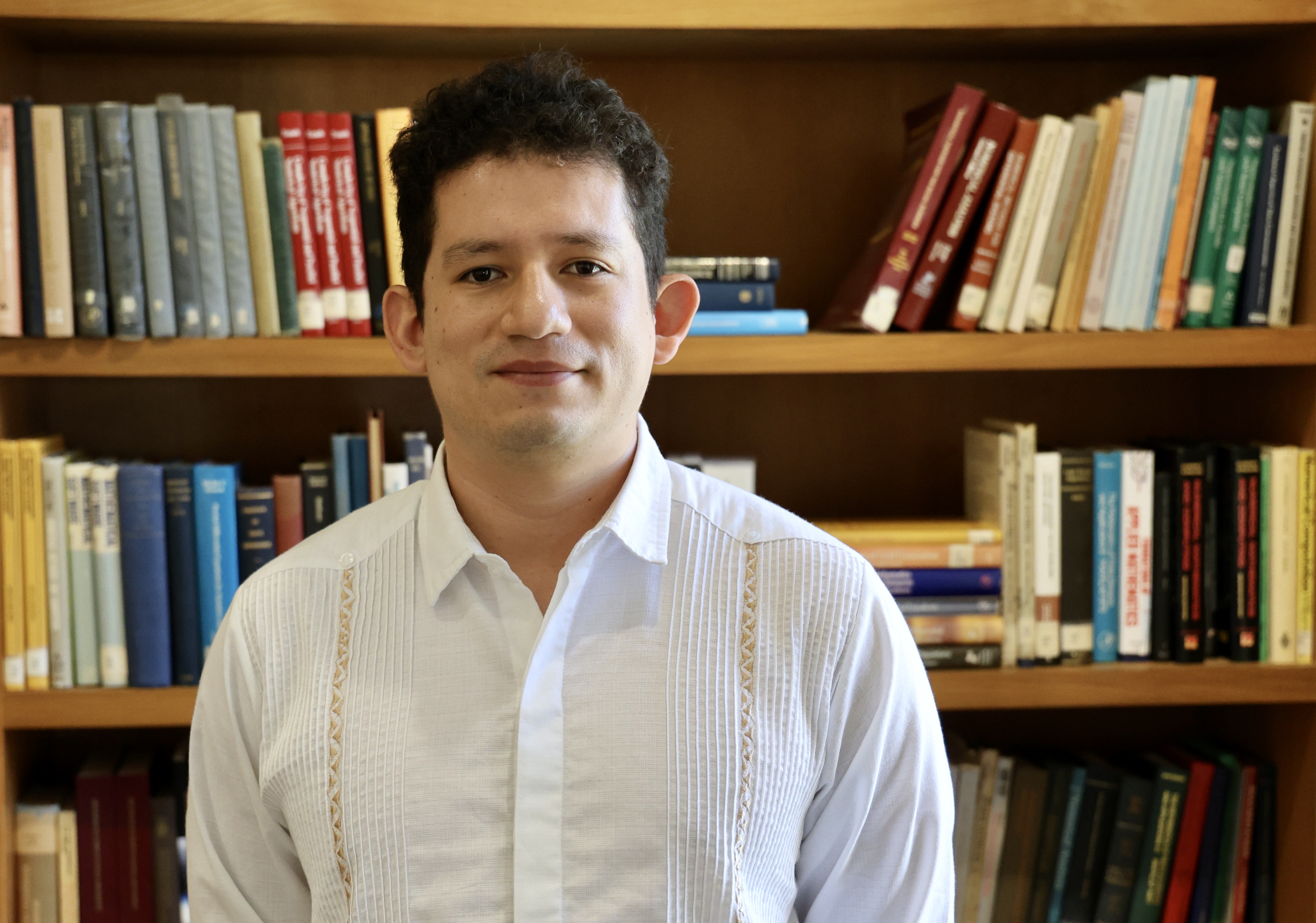Andrés Galindo Olarte embraces change with a familiarity that extends across borders and research domains. Olarte, who is among the newest cohort of Peter O’Donnell Jr. Postdoctoral Fellows, is an expert in navigating transitions with a focus on uncovering joy, community, and opportunity.
Olarte focused his Ph.D. research on computational kinetic equations at Michigan State University with Yingda Cheng. While his undergraduate background had centered around finding the existence of solutions for partial differential equations, he was motivated to pivot his research into more applied work that still heavily utilized theoretical analysis. “You need to be flexible and open to all the opportunities life throws at you,” Olarte noted. “The coding work can be a little hard for me, but it’s always very satisfying to see theoretical and computational results interplay and inform each other.”
